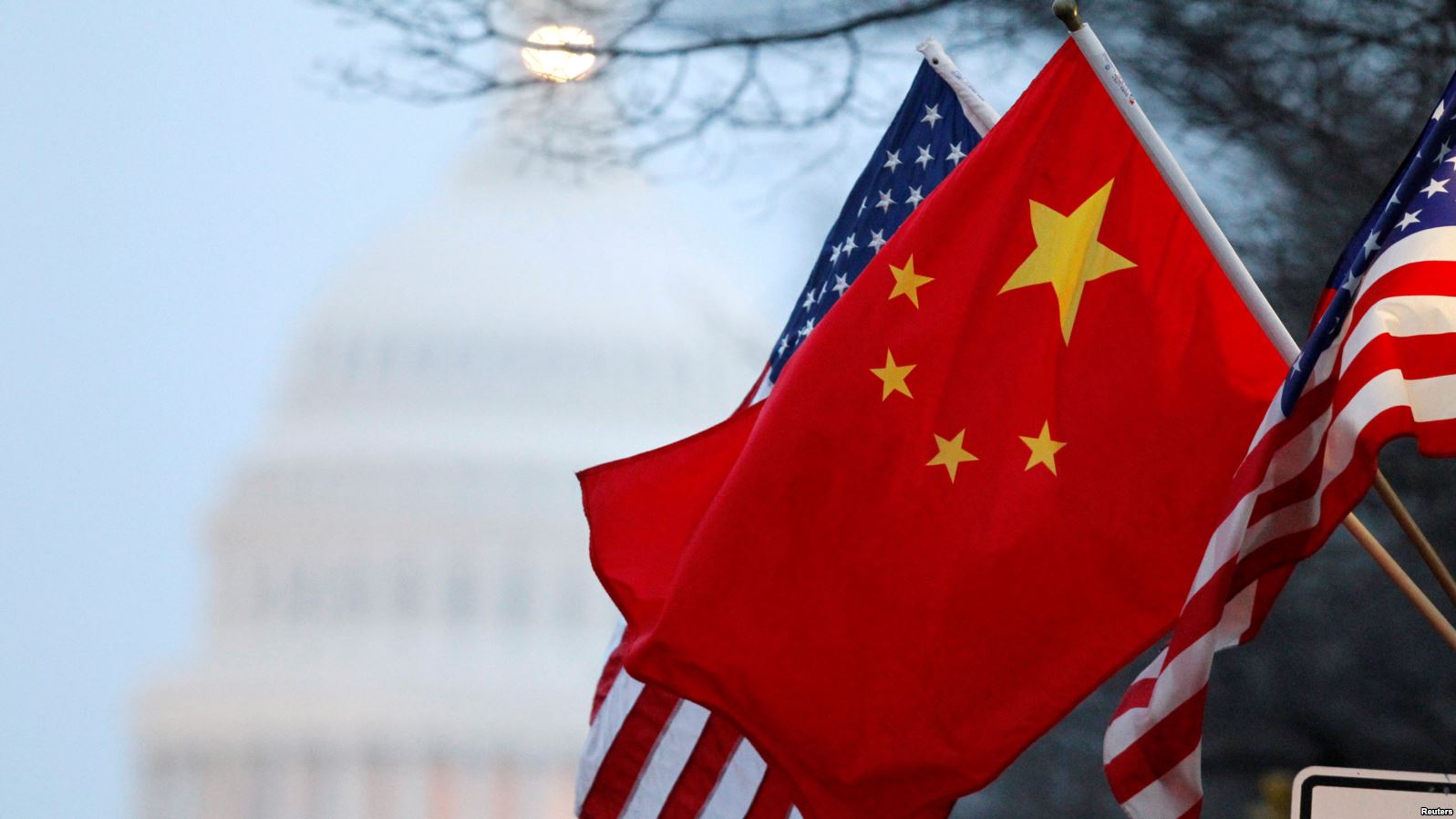Media Report

- CNBC reports: "The U.S. made a move this week to strengthen its relationship with Taiwan, raising eyebrows in China, which strongly opposes countries pursuing ties with the island-nation. The U.S. House Foreign Affairs Committee passed two bills on Tuesday aimed at bolstering 'the critical U.S.-Taiwan partnership,' according to a statement. One bill, called the Taiwan Travel Act, encouraged high-level visits between Washington and Taipei 'at all levels of government' while the second addressed Taiwan's exclusion from the World Health Organization. Currently, the State Department enforces self-imposed restrictions on official travel due to the unofficial nature of the bilateral alliance. Once Sino-U.S. ties were established in 1979, Washington cut off diplomatic links with Taipei in adherence with Beijing's "One China" policy, which recognizes the East Asian island as part of China. Since then, no Taiwanese leader has formally visited the White House, but that could change if Tuesday's bill gets signed into law. Washington still maintains cultural, commercial and security ties with Taipei. A state-run Chinese newspaper denounced the bill's passage, saying it could shake political ties with Chinese President Xi Jinping's administration."
- Reuters reports: "The dollar edged higher against the yen on Thursdayafter comments by China's foreign exchange regulator eased concerns that China may reduce its buying of U.S. government bonds. The dollar rose 0.2 percent to 111.70 yen JPY=, pulling away from a six-week low of 111.27 yen on Wednesday. China's foreign exchange regulator said a recent report that China was considering slowing down or halting its purchases of U.S. Treasury bonds could be based on erroneous information. Bloomberg News had reported on Wednesday that Chinese officials reviewing the country's foreign exchange holdings had recommended slowing or halting purchases of U.S. Treasury bonds. U.S. 10-year Treasury yields rose to 10-month highs and the dollar fell after the report was published. After the regulator's comments on Thursday though, the dollar and U.S. Treasuries gained some buying support."
- The Washington Post comments: "The first stop on French President Emmanuel Macron's trip to China this week was, curiously, not Beijing. Macron arrived in the central Chinese city of Xi'an, a town fabled for its imperial tomb filled with terra-cotta warriors as well as its role as the historic gateway to the Silk Road. The French president was deliberately pandering to China's sense of its past... Macron used the occasion to extend a hand to Beijing: 'What I came to tell you is that Europe is back,' he said, signaling a contrast between the 'America First' nationalism of President Trump and the openness of China's other interlocutors in the West. In turn, Chinese President Xi Jinping stressed his desire to 'protect multilateralism' and the pillars of the global economy. The rhetoric is already a dramatic illustration of how far China has come. For decades, the ruling Communist Party has publicly groused about the 'century of humiliation' endured by China at the hands of imperial European powers from the mid-1800s to the mid-1900s... But it's being superseded by another, more confident nationalist narrative, one based in reasserting China's historical primacy. China's gross domestic product is projected to surpass that of the United States by the end of the next decade. The country's leadership sees its ambitious new economic projects... as tools to restore Beijing's traditional role as the leading trade power in Asia, casting a shadow over a network of lesser tributary states... No serious thinker believes that China is about to supplant the United States as the world's leading superpower. But China's inexorable rise has been brought into sharper focus by the ostensible American retreat declared by Trump."
Calendar
- 2018-01-10 Inside the growing backlash against China
- 2018-01-09 China's Strategy to Psych Out the West Is Paying Off
- 2018-01-08 Trump is reportedly targeting China in aggressive trade crackdown
- 2018-01-07 Continued Strong Government Expected In China's Economy This Year
- 2018-01-05 China won't be prioritizing growth this year, economist says
- 2018-01-04 China and the US 'are about to ride a bumpy journey,' state news agency says
- 2018-01-03 Russia-China Oil Friendship Makes Crude Costlier for Europe
- 2018-01-02 Emboldened By A Strengthening Economy, China Flexes Its Diplomatic Muscles
- 2017-12-29 Trump said China was caught ‘red handed’ selling oil to North Korea. Beijing denies it did anything wrong.
- 2017-12-28 China's first constitutional change since 2004 may give Xi Jinping even more power
News
- CNBC Chinese media warns the US of 'retaliations' from 'all sides' after new Taiwan bills passed
- Reuters Dollar up vs. yen as concerns ease over China U.S. bond stance
- The New York Times Businesswoman's Fate a Test of China's Resolve on North Korea
- Financial Times China forex regulator disputes report on Treasuries purchasing policy
- CNBC Beijing is winning the pollution battle as other Chinese cities fall behind
- Bloomberg China's Largest Cryptocurrency Thrives Despite Intense Crackdown
- CNBC China warns of rising US protectionism after failed acquisition deal
- The Wall Street Journal China Quietly Orders Closing of Bitcoin Mining Operations
- The Guardian China church demolition sparks fears of campaign against Christians
- Yahoo Chinese Workers Abandon Silicon Valley for Riches Back Home
- CNBC Avocado sales could more than double this year, helped by demand from China's middle class
- Reuters China's Xi supports progress in inter-Korean talks: South Korea's Blue House
- CNN France's Macron takes the reins when it comes to EU-China relations
Commentary
- The Washington Post China's inexorable rise is helped by Trump's retreat
- SupChina Will China Stop Buying American T-Bills?
- The Wall Street Journal China's New Tack on Corruption Adds Risks for Foreign Firms
- Forbes China Expected To Make These Four Major Military Advances In 2018
- China Law Blog Reason Number 465,875 Why You Need a Manufacturing Contract
- Council on Foreign Relations China Is Heaping Debt on Its Least Productive Companies
- Forbes America Isn't Buying China's New Mid-Sized Airplane -- Here's Why
